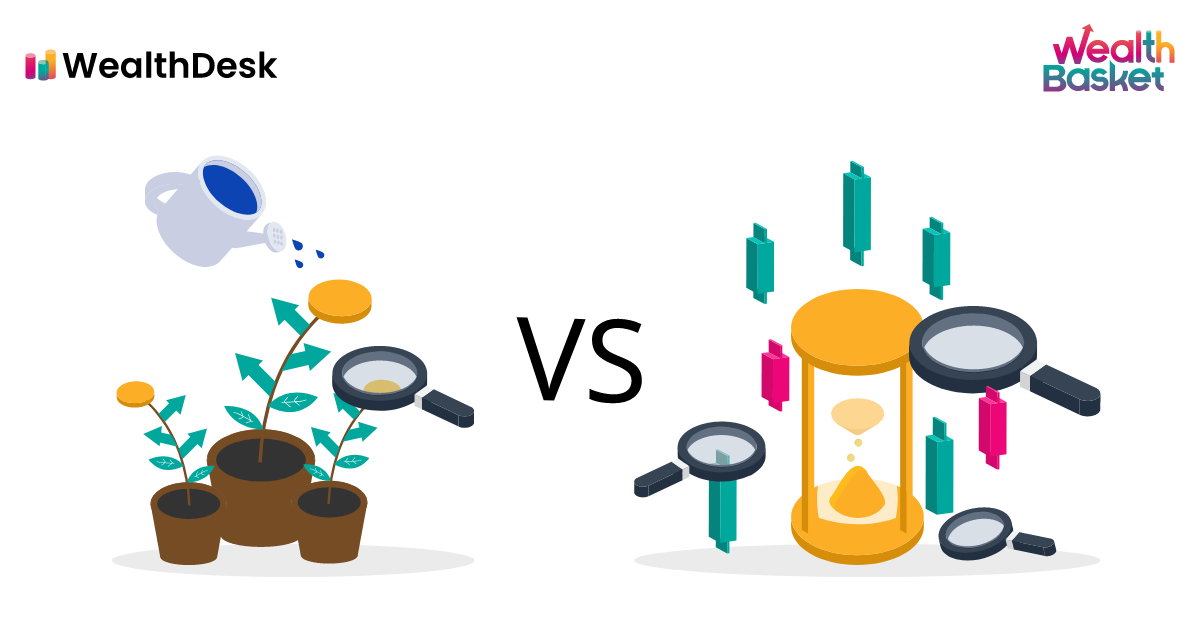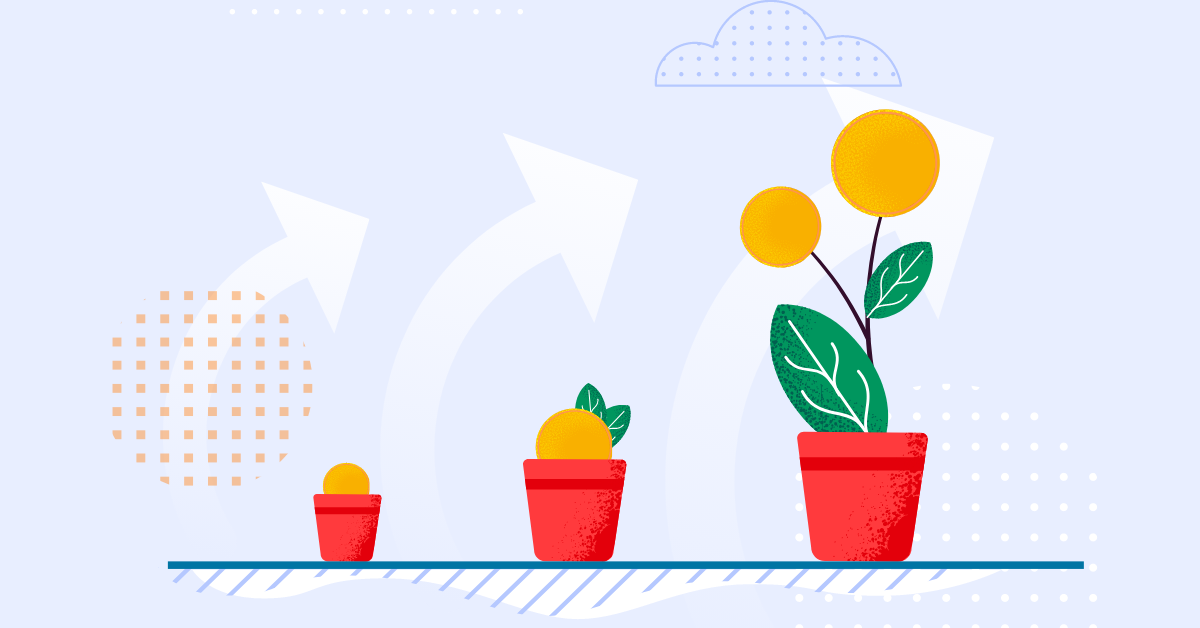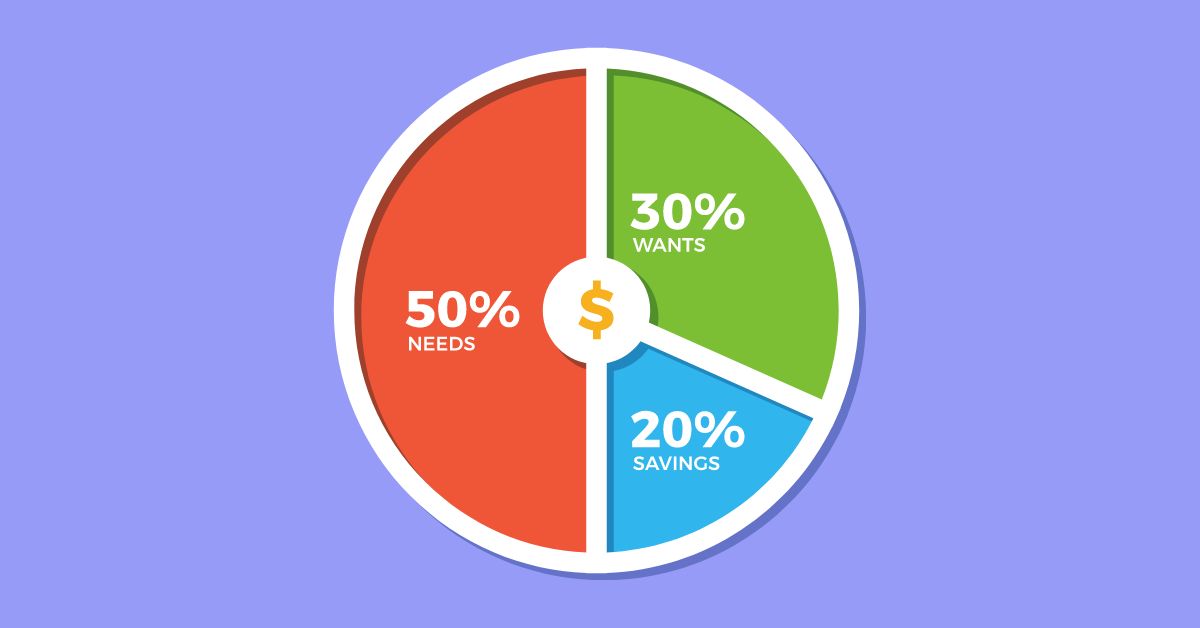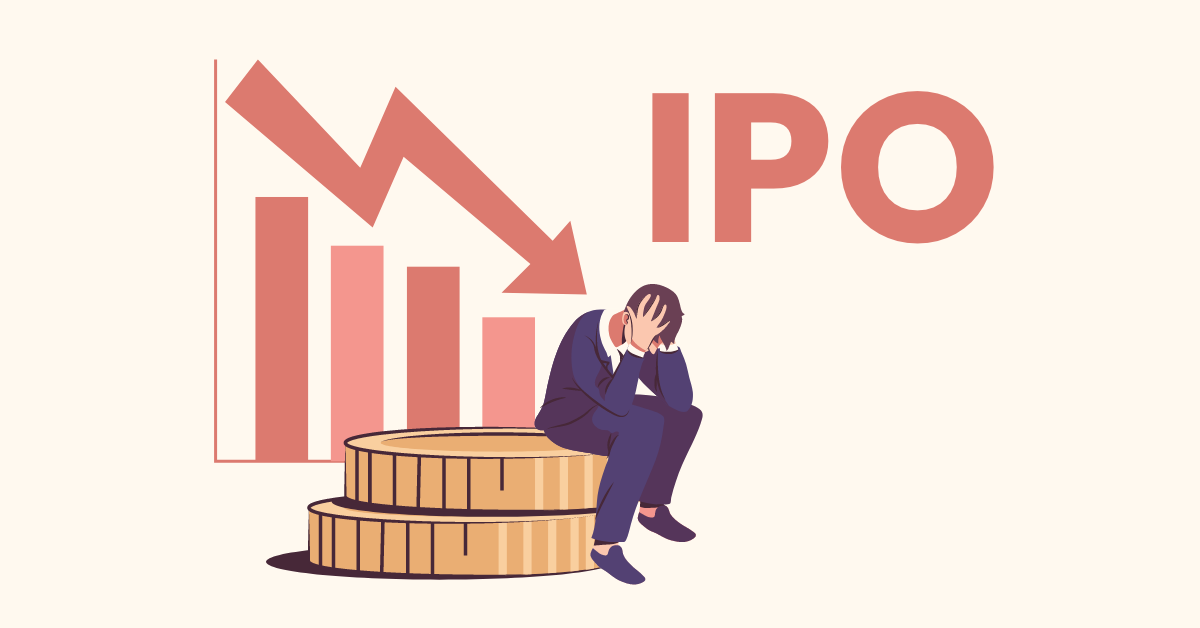You may have often heard that investing is a game of speculation and luck. As a result, people are generally hesitant to invest. This happens as people fail to differentiate between investment and speculation. It is essential to understand how investment and speculation differ.
This article highlights the meaning of investment, who are investors, types of investors, the meaning of speculation, who are speculators, types of speculators, the top six differences between investment and speculation, and who wins between investors and speculators.
What Is An Investment?
Investment refers to acquiring an asset or investing in it to create wealth by earning income or capital appreciation in future. The future benefits from investments can be regular income, such as dividends, interests, etc. or the appreciated value of the asset, or both.
For instance, Kiyan purchases a stock for ₹1,500, expecting a substantial return in the next five years. Plus, he puts ₹50,000 in fixed deposits to earn a 6% interest per annum. Both of these are investments by Kiyan.
Also Read: Saving vs Investing: Key Differences and Comparison
Who Are Investors?
Any person or an organisation who makes investments with the intent to generate returns, in the long run, is called an investor. In the example mentioned above, Kiyan is an investor.
Types Of Investors
Mainly, you will find two types of investors: retail and institutional.
- Retail investors: Retail investors are the individual investors who buy and sell financial assets and typically have a smaller buying power than institutional investors.
- Institutional investors: Institutional investors are the institutions that pool money from various investors and invest that money into various financial assets. Examples include Asset Management Companies.
What Is Speculation?
Speculation refers to the practice of putting short-term bets on financial assets to gain quickly. It involves a large amount of speculative risk. Speculative risk means uncertainty about an event’s result- whether it would lead to profit or loss. Speculative investments aim to make quick profits while taking considerable risks.
For instance, Karan thinks the ongoing uptrend of stock would soon convert into a downtrend and, therefore, short-sells the stocks of Company A. If the trend reverses to a downtrend from an uptrend, he will make a great profit. However, if the uptrend continues, he would suffer a significant loss.
Who Are Speculators?
The market participants who speculate on an asset or event to make quick profits are known as speculators. However, speculators tend to take considerable risks. In the example mentioned above, Karan is a speculator.
Types Of Speculators
The speculators can be bullish or bearish.
- Bullish speculators: Those speculators who expect the prices of financial securities to increase are known as bullish speculators.
- Bearish speculators: Those speculators who expect the prices of financial securities to decrease are known as bearish speculators.
Top 6 Differences Between Investment and Speculation
Here is how investment and speculation differ.
- Investment horizon: The investments are usually made for a longer horizon, for more than a year and often for three to five years or more. In contrast, speculative investments are made for a shorter horizon, typically less than a year.
- Degree of risk: Although investment and speculation both involve risk, investors can choose to take a lower risk. On the other hand, speculative activities inherently involve a tremendous amount of risk.
- Funds: Investors generally make investments using their funds. In contrast, speculators may use borrowed funds for speculative investments.
-
Basis of decision: Investors
generally evaluate the company’s fundamental and
financial elements, such as
price-to-earnings ratio (P/E), return on equity (ROE), net profit, etc., to decide
whether to invest in a particular stock. Even for
other financial assets, investors assess the
fundamentals of those assets to make an investment
decision.
In the case of speculation, the speculator relies more upon technical charts, market behaviour, tips, etc., to make any move.
- Participant’s behaviour: Investors can be of risk-averse or risk-neutral nature and, therefore, act cautiously and conservatively while making investment decisions. In contrast, speculators are by nature risk-loving and generally take aggressive decisions.
- Expected returns: Investors may expect moderate yet continuous returns from investment. In comparison, speculators look for a big chunk of returns from one transaction instead of constant returns.
| Investment | Speculation | |
| Purpose | To gradually build wealth over a long period. | To achieve high returns from market fluctuations. |
| Time Horizon | Long-term (Years to decades). | Short-term (Minutes to months). |
| Risk | Lower risk. High-quality, well-researched assets. | Higher risk. Depends heavily on market timing. |
| Method | Research-driven, focuses on fundamentals. | Often based on market trends or sentiments. |
| Returns | Consistent and tends to provide stable returns. | Variable, could be very high or result in losses. |
| Example | Buying stocks for their long-term growth potential. | Trading stocks based on daily price fluctuations. |
| Wealth Building Strategy | Steady wealth accumulation over time. | Attempting to make large gains quickly. |
| Decision Basis | Fundamental performance of the company. | Market moods, rumors, technical analysis. |
| Emotional State | Generally less stressful. | May involve significant stress due to volatility. |
Who Wins – Speculator Vs Investor?
As speculators and investors have different objectives, there is no clear winner. The speculators may win if the event occurs as expected; however, there are also higher chances of failure.
In the case of investors, there are more instances of investors getting positive returns in the long run; however, there is also no guarantee of winning.
The winning or failure of investors and speculators depend on various factors such as the type of financial assets chosen, market psychology, performance of their investment or speculative bets, etc.
Discover stocks that suit certain filter criteria and dive into details to check their WealthBaskets.
Final Thoughts
Both, investors and speculators are market participants. Investment and speculation aim at a gain. However, both differ significantly regarding risk appetite, expected returns, decision basis, types of funds used, etc. Whether the investment is better or speculation, can’t be said. You may engage in either or both of them after weighing their pros and cons.
At WealthDesk, we enable you to invest in WealthBaskets, which are the combinations of stocks and ETFs and reflect an idea, theme, or strategy. SEBI registered professionals manage these WealthBaskets.
FAQs
The main difference between speculators and hedgers is related to their trading objectives. The speculators aim to reap a big chunk of profit by speculating. In contrast, hedgers aim to reduce the risk associated with future price movements.
The differences between trading and speculation are
as follows.
– In trading, you may
intend to take delivery of the stock or other
financial security if the price moves in your
expected direction. However, in speculative
investment, the intention to take delivery is
minimal.
– The aim of traders can
be to reduce or manage the risk. On the other hand,
speculation aims at greater profits than anything
else.
Various types of investments include stocks, bonds, provident funds, fixed deposits, commodities, real estate, cryptocurrencies, etc.
The key difference between investment and gambling is that investment is more research-based and, therefore, relatively less risky than gambling. In comparison, gambling is riskier as it is instinct or luck-based.
Though the outcome of speculation and gambling are uncertain, the degree of risk differs. A speculator may speculate based on trends and other factors; however, gambling is extremely risky as it is instinct or luck-based.


















